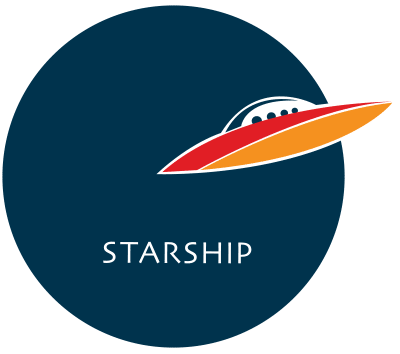I’m on my way home, compressed among the masses in a train heading into Richmond Station. Some tall American guy is getting into his sales pitch on the phone close by. In the train carriage, there’s no escape. “I’ve been in the marketing business for decades, working with firms like X, Y, and Z,” he says. OK. So far so normal. Good for you dude, hope you get the gig. “I’m a futurist. Really into mindfulness. I’m an ideas guy, y’know. Specialising in future-proofed strategies.”
… Okay, man.
(Confession: I might have written down some of the keywords in his spiel and reproduced them in the studio dog’s bio.) I’ve got nothing against buzzwords, or, as they’ve been perhaps uncharitably called in this agency, “w*nker words that work”. I was a lawyer before I got into the ad business, so you could say I have a prima facie higher-than-average tolerance for self-serving industry jargon that makes their user sound more qualified than they really are. Carpe diem, right? It’s a cynical industry–I’d go so far to say that cynicism is a good trait in an ad agency–so why are buzzwords like “futurist” and “long-tailed” and “mindfulness” so ubiquitous?
Because clients like it, that’s why.
Yeah, You Guys
Buzzwords are kinda like the words on wine reviews. Full-bodied? Hint of oak? Smoky charcoal and jam? More tannin? Dry, sweet? Makes you feel better about forking out $100++ for the bottle at the restaurant. The dressed-up sommelier knows it. He might even be paid more than the chef. After all, he’s just doubled your bill by persuading you to have a few glasses. Did you know alcohol is classified a carcinogen by the WHO? Probably, but pour it on. You’ve been sold into the service and the product.
Advertising hasn’t been classified a carcinogen by the WHO, though it might just be a matter of time. More than sommeliers in restaurants, advertising is itself the art of selling. You might have heard some of our favourite buzzwords being thrown around, such as–
Front-end/Back-End
What We Wish It Means: Something to do with bacon. The crispy bit? Rashers? Thick cut or in strips?
What It Really Means: Refers to online presence development. Anything to do with the “front-end” is anything that deals with anything that the users see. Website design, UX, and more. “Back-end” is server-side stuff, like databases, things that the users won’t see. Dynamic sites require databases to work: things like user profiles, the posts users might upload and such are all stored in databases.
Future-proofing:
What We Wish It Means: Retirement money. What? Doesn’t everyone have a dream of retiring and lying on a beach somewhere in the Bahamas, slowly increasing their skin cancer risk?
What It Really Means: A product or service that would not need updating/significant updating as tech changes. Frankly, few things are future-proofed. And why should they be? Things should change with time, if only to get better.
Long-tailed:
What We Wish It Means: Something to do with animals. We love animals.
What It Really Means: Often used arbitrarily, so who knows. Technically it refers to large number of products that sell in small quantities, as contrasted with the small number of best-selling products. The total sale of these large number of products is the “long tail”, and is often looked at as a new market–how do you sell unpopular niche products? “Long-tail” marketing tactics include stuff like viral marketing.
Mindfulness:
What We Wish It Means: Advertising that isn’t silly. You’d be surprised how much controversial adwork out there is self-inflicted.
What It Really Means: Mindfulness is the practice of paying attention to the present in a focused nonjudgmental way. This is great for approaching targeted audiences, and necessary for nuanced and positive advertising strategies. Research and diversity in your decision-making team is key.
Omnichannel:
What We Wish It Means: Something to do with Transformers. Robots in disguise.
What It Really Means: A multichannel approach to sales that tries to make the customer’s sales experience as seamless as possible, integrating online and offline touchpoints.
Programmatic:
What We Wish It Means: A future Terminator movie reference maybe. Hasta la vista, Sarah Connor.
What It Really Means: In advertising, “programmatic” ads are basically ads that have been purchased through the use of software. They’re often targeted at people via the use of available database information.
ROI:
What We Wish It Means: Really Organic Ice-cream. What? We like ice-cream.
What It Really Means: Return on investment, a performance measure used to evaluate the efficiency or value of an investment. How much profit was made? Or were some other goals met? It’s important to define performance markers when you’re briefing an agency.
Now you know. Next time you talk to a marketer, play a fun game. Challenge them to talk to you for ten minutes without using a single buzzword. Curious about anything else not stated in here? Feel free to call in for a chat.
